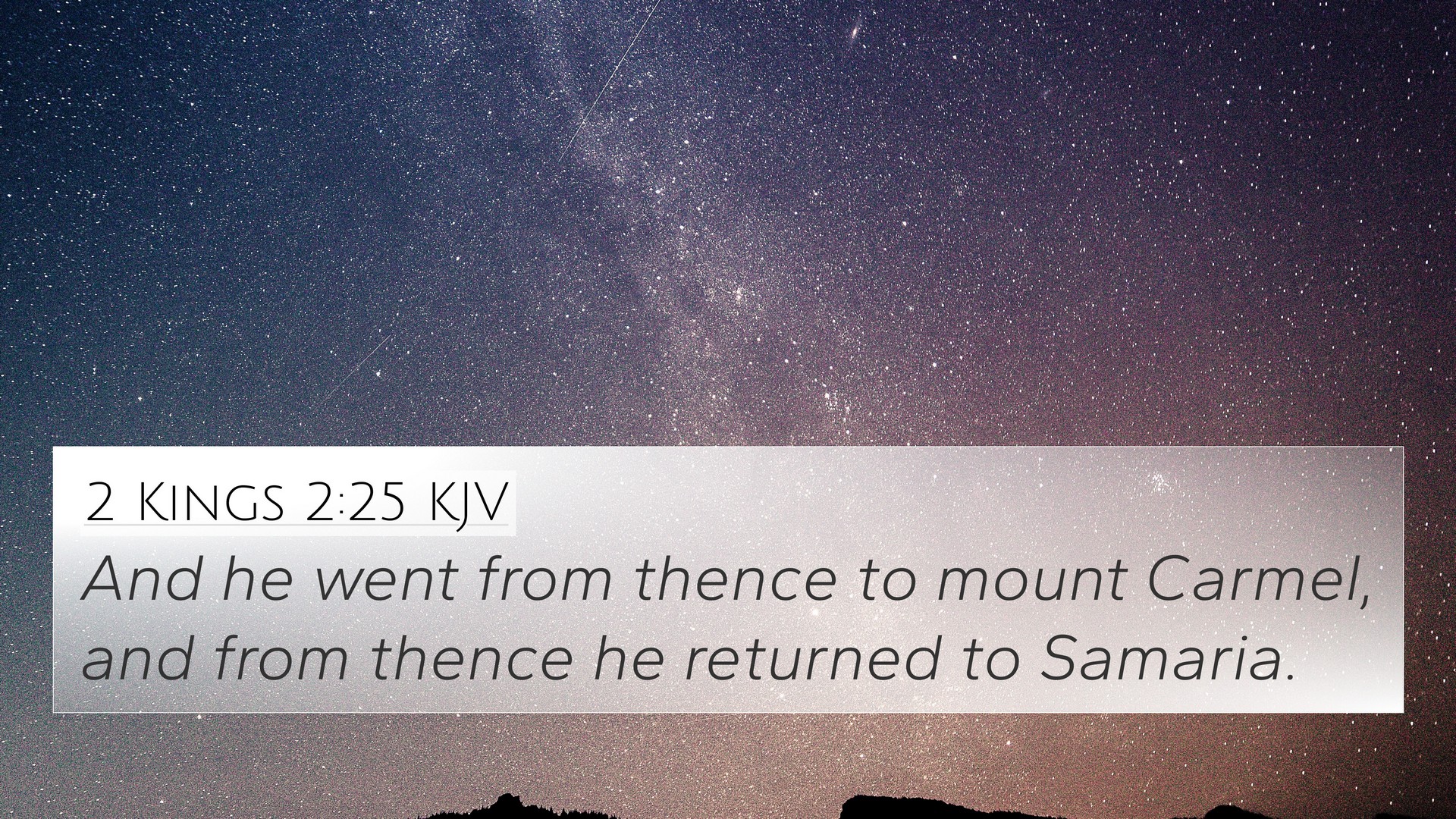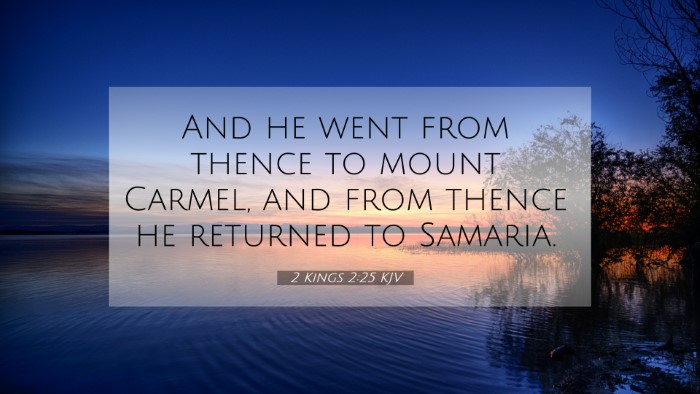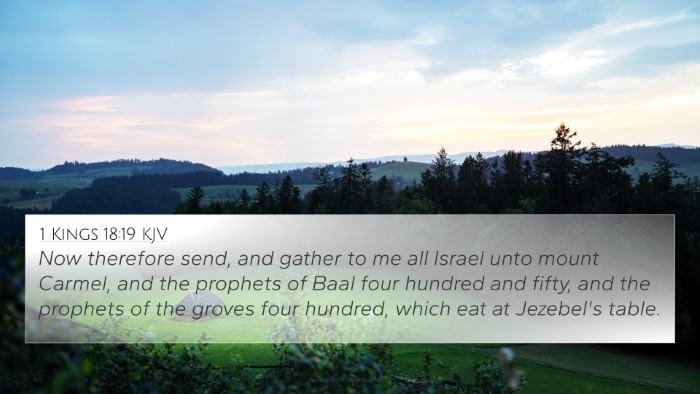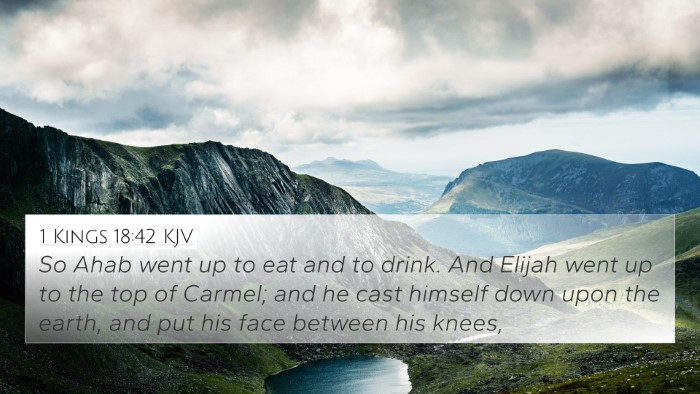Understanding 2 Kings 2:25
2 Kings 2:25 recounts a significant event in the life of Elisha, the prophet who succeeded Elijah. In this passage, we see Elisha confronting a group of youths who mock him. The verse states, "And he went from thence to Bethel: and as he was going up by the way, there came forth little children out of the city, and mocked him, and said unto him, Go up, thou bald head; go up, thou bald head."
Exposition of the Verse
This verse highlights several key themes, including the authority of God's chosen prophets, the consequences of mocking God's messengers, and the cultural context of respect towards spiritual leaders.
Commentary Insights
-
Matthew Henry: Henry emphasizes that these youths displayed a blatant disrespect not only for Elisha but for God Himself. Their mockery is a reflection of the spiritual state of the society they lived in, where respect for God’s appointed leaders had eroded.
-
Albert Barnes: Barnes points out that the term "little children" indicates that these were not merely children but young men capable of understanding the weight of disrespect they were showing. He notes that their taunts were aimed at discrediting Elisha's prophetic authority.
-
Adam Clarke: Clarke connects the incident to the severe consequences of irreverence. He explains that this act of mockery was not just a harmless jest but a serious affront that warranted a strong response.
Thematic Connections
The mocking received by Elisha aligns with a broader biblical theme where God's prophets are often met with scorn. This scenario can be related to numerous other scriptural texts that deal with similar themes of prophetic ridicule and divine retribution.
Related Bible Cross-References
- 1 Kings 18:17-18: Elijah’s confrontation with King Ahab highlights the hostility faced by prophets.
- Luke 10:16: Jesus emphasizes that rejecting God's messengers equates to rejecting God Himself.
- Matthew 5:11-12: The Beatitudes remind believers of the blessings that come from being persecuted for righteousness.
- Acts 7:52: Stephen recounts how the prophets were consistently mistreated, linking to the themes in 2 Kings 2:25.
- Mark 6:4: Jesus notes that a prophet is not without honor, except in his own country, which resonates with Elisha’s experience.
- 2 Chronicles 36:16: This verse mentions mockers who deride the messengers of God, showing a historical pattern of disrespect.
- Jeremiah 20:7: The struggles of Jeremiah as a prophet highlight the mockery and ridicule faced in his ministry.
- Matthew 23:34: Jesus warns that God sends prophets, wise men, and scribes, who will be persecuted and killed, echoing the experiences of Elisha.
- Lamentations 3:14: This verse illustrates how the speaker has become a target of mockery, fitting in with Elisha's scenario.
- Hebrews 11:36-38: This passage mentions prophets who were mocked and persecuted, underscoring the trials faced by those who speak for God.
Importance of Context
Understanding 2 Kings 2:25 within its context enhances comprehension of the broader narrative of Elisha's ministry. The dangers that face spiritual leaders underscore the necessity of respect towards God’s chosen vessels and the severe consequences of derision.
Conclusion
In analyzing 2 Kings 2:25, it becomes clear that disrespect towards God's messengers carries grave implications. This verse serves as a reminder of the sacredness associated with prophetic roles and the societal obligation to honor those who speak on behalf of God. Through insightful commentary and cross-references, we gain a richer understanding of the dynamics between the prophet, the people, and their shared covenant with God.





